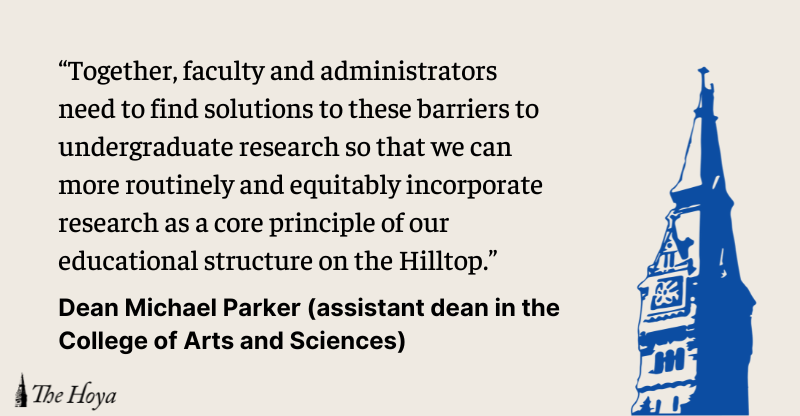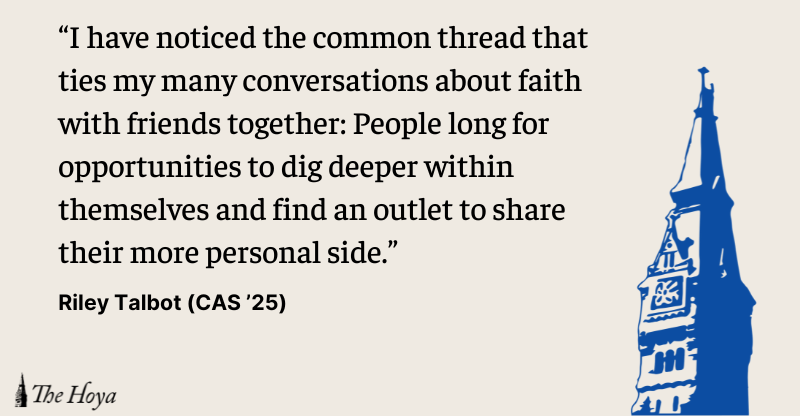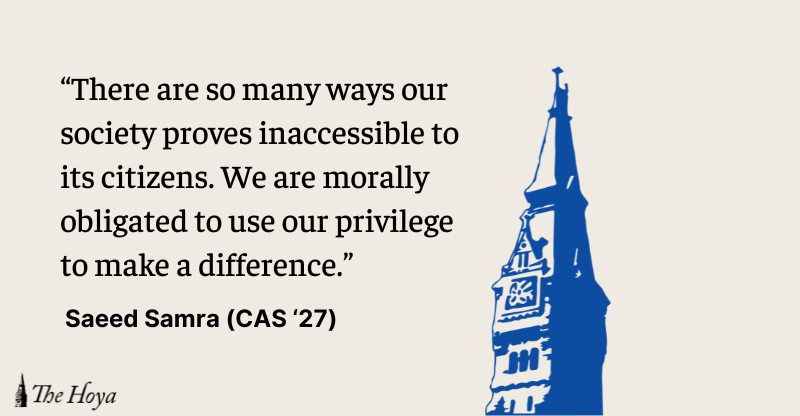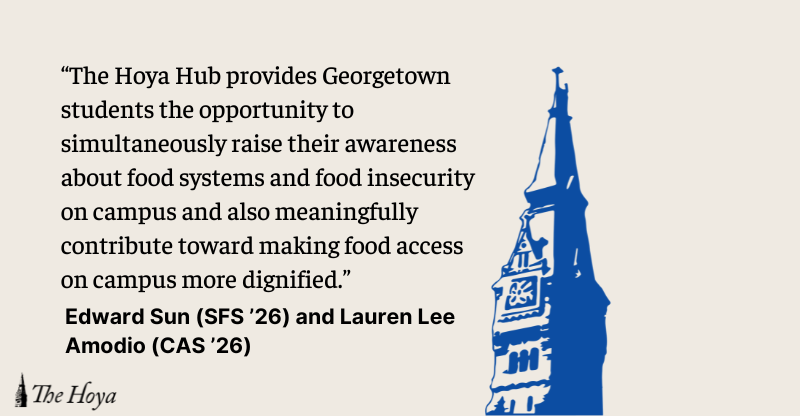I am a scientist turned academic advisor. At Georgetown University, I wear many hats: I advise a caseload of about 250 biology and chemistry undergraduate students in the College of Arts & Sciences (CAS), teach coursework in virology and biosecurity and lead a team of undergraduate researchers investigating biosecurity policy.
Core to these enterprises is my belief that principles of research — hypothesizing, experimentation, discovery, reflection and synthesis — are fundamental components of both teaching and advising. With this in mind, I think there are improvements we need to make as faculty and administrators at Georgetown to better integrate research into the undergraduate experience.
I’ve come to this conclusion in part because of my own path to scholarship, having grown up and attended college in rural Pennsylvania. While I hadn’t had much exposure to biology before college, I was drawn to science because of its attempt to synthesize and understand natural processes. I realized early on that I wasn’t satisfied simply with what we knew, but also curious to explore what we didn’t, which drew me to research.
After four years spent inside classrooms and labs and countless hours spent looking at genomic data, I achieved one of the proudest moments of my educational career: publishing my undergraduate thesis research on plant bioinformatics. But in true scholarly fashion, full-time research in graduate school led to a better realization of just how little I really knew, even after decades of schooling.
It was in these moments spent on research that I learned the most about myself as an intellectual — what drove me, my strengths and, perhaps most importantly, my weaknesses. Classwork had always come easily to me, but research was hard. In the challenge, though, was the beauty, too.
Reflecting on these experiences, I think they are indicative of the core of what makes an excellent scholar: students who have transformed, via inquiry, into academic innovators. This is why it is so critical that students participate in the process of guiding their own research, however big or small the project. And I have come to the conclusion that the epitome of education is best viewed as an evolution of self.
I believe that term papers and problem sets, while useful learning exercises, are not sufficient for such profound educational transformation. Students are far more likely to realize true scholarship when they meet hard questions head on, justifying their assertions based on observation, identifying gaps and thinking differently than others have before. And in the context of an institution, this is much more likely to happen productively and successfully through an iterative process with a mentor rather than submitting an assignment to a grader.
Since arriving at Georgetown, I have noted two areas where we can better enable the transition from student to scholar through research: requirements and centralization. Relatively few of our majors require meaningful participation in research, which is likely a result of a blend of bandwidth and pedagogy — departments may feel that mentored research takes more of their resources, and this may disincentivize its inclusion in their curricula.
Within the CAS, only 10 majors require a “research methods” style course, and only eight require a research course. In addition, we have a culture where students do all the legwork to find research opportunities. Undergraduate research at Georgetown is decentralized, so when a student wants to get involved in research, they are expected to navigate via department websites, cold email chains, appointment calendars and assertive requests for positions.
Together, faculty and administrators need to find solutions to these barriers to undergraduate research so that we can more routinely and equitably incorporate research as a core principle of our educational structure on the Hilltop. As such, I think it is important that we internally incentivize faculty to mentor students in research, develop requirements for research across most majors and provide resources to help match students with mentors. Importantly, we should expect and enable faculty to teach students through research. Taking these steps toward inclusion, we are more likely to produce a pool of professionals attuned to the principles and values of scholarship.
Nowadays, my proudest academic moments are helping my student researchers accomplish what I did — to conduct, complete and publish a project. And, really, the publication just provides tangibility and closure. The essence of the pride isn’t the product per se, but the journey, if you’ll allow me the platitude. Those experiences are the culmination of true scholarship: to produce something new, innovative and inspiring. To observe and participate in the formation of individuals capable of generative education — and to then be able to learn from them — is a process of which I’ll never tire.
Michael Parker is an assistant dean in the College of Arts & Sciences.




















